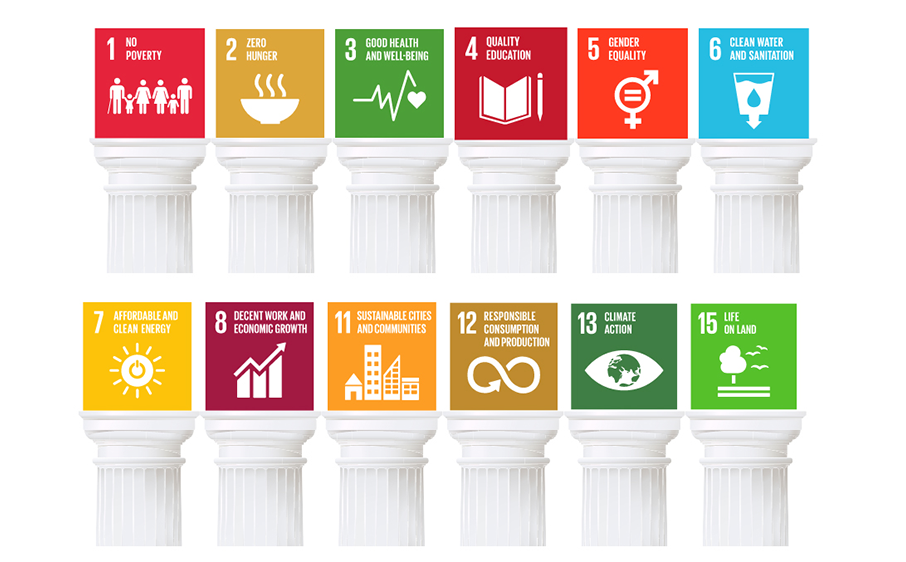In the evolving business landscape, sustainability has transcended its role as a mere buzzword to become a central strategy for growth and resilience. Family-owned businesses, with their unique position and long-term outlook, are perfectly poised to lead the charge. Beyond the environmental imperative, there’s a compelling financial narrative: embracing green practices unlocks new revenue streams, yields tax advantages, and bolsters social impact ratings. This article delves into the myriad benefits of integrating sustainability into the operations of family businesses and outlines practical strategies to do so effectively.
Why Sustainability is a Win-Win for Family Businesses
Family businesses are cornerstones of the global economy, yet they navigate a unique set of challenges—from succession planning to balancing tradition with innovation. Sustainability can be a golden thread, weaving through these issues to offer solutions that ensure longevity and relevance. By embedding green practices into their DNA, family enterprises can drive innovation, attract eco-conscious consumers and investors, and solidify their reputation. Sustainability aligns with the core values of stewardship and community responsibility, laying a foundation for a legacy that honors both planet and people.
Strategies to Monetize Sustainability
- Leverage Tax Benefits through Green Investments:
Investing in energy efficiency (like LED lighting and energy-efficient appliances) and renewable energy sources (such as solar panels) can significantly reduce operational costs. Moreover, governments worldwide offer enticing tax credits, rebates, and incentives for such investments, lowering the initial financial barrier and accelerating ROI. For example, installing solar panels not only reduces energy bills but may also qualify your business for grants or tax deductions.
- Boost Your Social Impact Rating with Sustainable Practices
Elevating your social impact rating is not just about doing good—it’s about enhancing your brand’s appeal to a growing segment of socially conscious consumers. By implementing a sustainable supply chain, prioritizing eco-friendly products, and obtaining certifications like B Corp, family businesses can attract attention from green investors and customers alike. This can lead to increased market share and investment in the burgeoning eco-economy.
- Generate Revenue through Carbon Credits and Green Marketing
Carbon offset programs offer a unique opportunity for businesses to monetize their efforts to reduce emissions. By achieving and selling carbon credits, companies can create an additional revenue stream. Furthermore, sustainability can become a unique selling proposition, differentiating your brand in a crowded market. Utilizing green marketing strategies not only highlights your commitment to the planet but also taps into the growing consumer demand for responsible businesses.
- Capitalize on Sustainability Consulting
For family businesses that have successfully navigated the transition to sustainable operations, there’s potential to monetize this expertise. Offering consulting services to other companies looking to embark on a green transformation can open new revenue channels and position your business as a thought leader in the sustainability space.
Inspirational Case Studies
Patagonia and Seventh Generation stand as beacon examples of how environmental sustainability can be harmoniously aligned with profitability. Patagonia’s dedication to fair labor practices and recycling, alongside Seventh Generation’s commitment to ingredietransparency and renewable energy use, not only elevate their social impact ratings but also contribute to their bottom line and brand loyalty. These success stories underscore the potential for family businesses to flourish by embedding sustainability at the heart of their operations.
Conclusion: Sustainability as a Path to Prosperity
For family-owned businesses, integrating green business practices offers a pathway to ensure longevity, relevance, and profitability in an increasingly environmentally conscious market. By leveraging tax benefits, enhancing social impact ratings, and identifying new revenue streams through sustainability, these enterprises can secure a competitive edge. Sustainability is not merely a responsibility—it’s a strategic opportunity to innovate, thrive, and leave a lasting legacy for generations to come.
Embrace this journey with openness to change and a commitment to making a difference, harnessing the power of sustainability to drive your family business toward a prosperous, equitable, and sustainable future.











